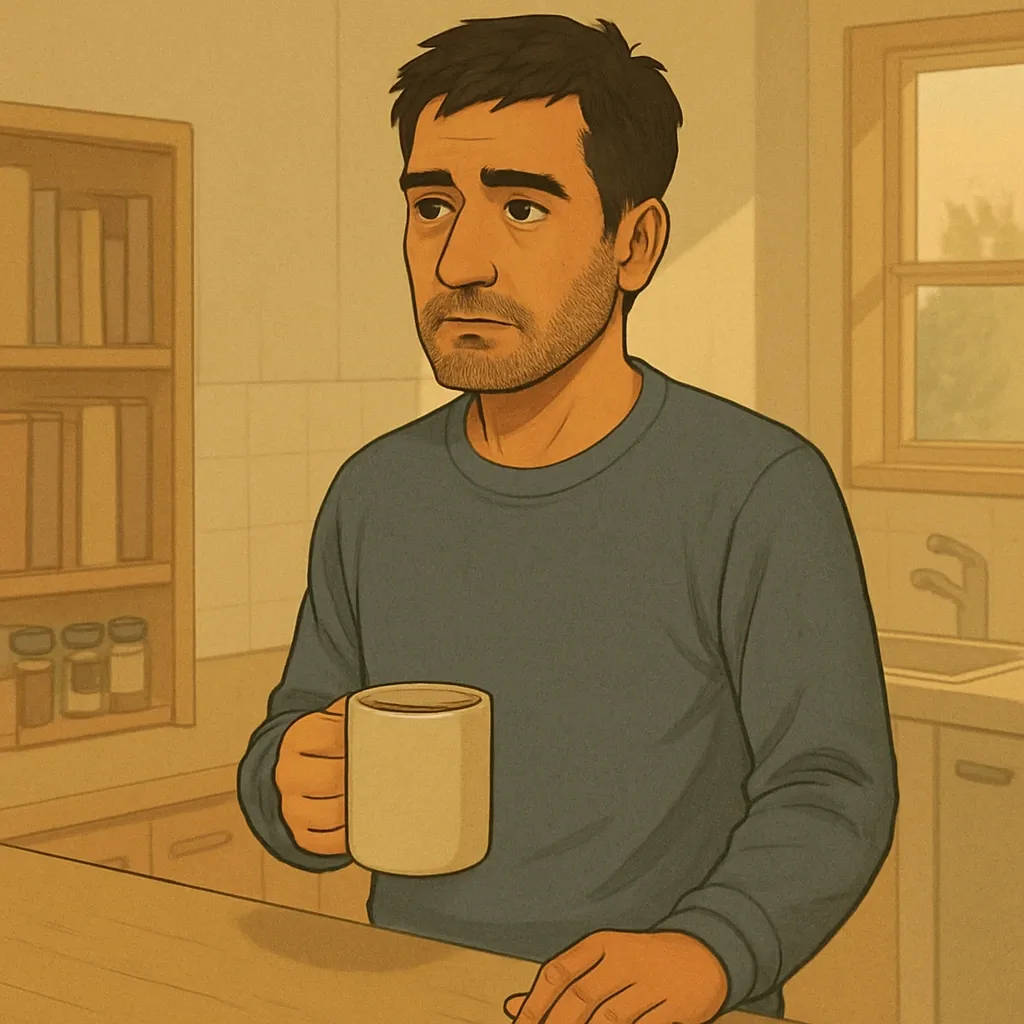From the Soul on Call series
Note: These reflections are fictional and intended for educational and reflective purposes only. They are not medical advice, are not based on any specific individual, and do not represent the views of any employer or institution.
Dr. Solan Call stood at the kitchen counter, coffee in hand. The mug was warm, the house still. No calls. No pager. Nothing scheduled.
And yet, he felt like he was running late for something invisible.
He scrolled his phone. Closed it. Opened the fridge. Stared. Closed it again. Walked to the bookshelf. Read five titles. Felt nothing. Briefly considered alphabetizing the spices.
It was a rare weekend off. No coverage. No catch-up charts. The gift of time.
And somehow, it made him feel… vague.
He wasn’t anxious, exactly. But he also wasn’t relaxed. It was like being trapped in the final loading screen of himself.
He tried to remember what he used to enjoy. Not the aspirational stuff—just the normal, low-effort pleasures. Music. Stand-up. Wandering walks. Non-instructional podcasts. Things that didn’t require a calendar invite or continuing education credit.
But the urge to do any of them had gone thin. Like someone had turned the volume down on his preferences.
It wasn’t boredom. It was static. The emotional equivalent of weak hospital coffee.
He hadn’t noticed it creeping in. It was slow. Quiet. Almost polite.
He’d been focused. Productive. He hadn’t had time to unravel. Just enough time to slowly unfeel.
There’s a kind of burnout that doesn’t interfere with function. It just deletes the parts of you that aren’t directly useful.
He still cared about patients. Still taught learners. Still answered emails within the hour, even when he didn’t have to.
By all accounts, he was performing well. But inside, something was… untextured.
He found himself growing quietly hostile toward people who looked rested. Irritated by colleagues who went to yoga during daylight hours. Suspicious of anyone who used the word “joy” without irony.
He didn’t say it out loud, of course. He was far too polite for that.
But he caught the thought: “Must be nice.”
It wasn’t envy. It was alienation.
They hadn’t done anything wrong. They just reminded him of something he used to have access to.
He hadn’t let go of joy. He had just… stopped reaching for it. The appetite had faded before he noticed it was gone.
And the worst part? He couldn’t trace when or why.
The forgetting had been slow. Rational. Efficient.
Like the system wanted his skills but not his softness. And he’d adjusted accordingly.
He didn’t feel broken. Just oddly flat. Like a whiteboard that had been erased but not cleaned.
He sat back down with his coffee. Let sunlight stretch across the counter. Exhaled.
Nothing profound happened. No tears. No revelations. Just a small shift.
He noticed the sound of birds outside. The way his spine unwound without the EMR open. The faint spark of wanting to hear something funny.
It wasn’t healing. But it was contact.
And for now, that was enough.
His phone buzzed—a short message from Dr. Otto Pilot.
“New scanner down. Again. Welcome to efficiency.”
Solan smirked. Otto’s texts always read like software error logs with a sense of humor.
He typed back:
“I miss coffee that tastes like despair.”
Otto replied:
“I can send you a cup from the pit. One sip and your will to live will flatline.”
Solan chuckled. Briefly. Quietly. But it was real.
Otto’s clinical detachment always came wrapped in a kind of bone-dry camaraderie. They didn’t talk often, but the connection—like the coffee—lingered.
This wasn’t about becoming someone new. It was about remembering he was someone at all.
So here’s the prompt he started carrying with him—not as homework, but as a kind of loose compass:
– What have I stopped doing—not because I outgrew it, but because I forgot it mattered?
– What parts of me still flicker, even faintly?
– What would it look like to make room for joy—not as a luxury, but as a form of remembering?
You don’t need to optimize your weekend.
You don’t need a new identity.
You might just need one unstructured hour.
And maybe a second cup of coffee you don’t feel guilty about.
🌱 Want to keep going?
If something in this story felt familiar, the next Soul Kit might speak to you:
Remembering What I Forgot
It’s not a fix. Just a gentle prompt to notice what still matters—underneath the meh.
Want to keep going?
One email a week with the latest story and Soul Kit.
